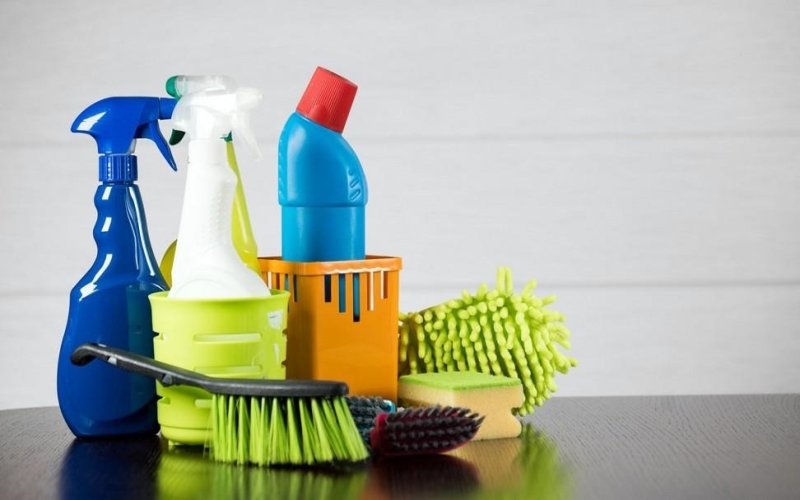Making your own eco-friendly cleaning products is a simple and sustainable way to reduce your environmental footprint while keeping your home clean and healthy. By using natural ingredients and simple recipes, you can create effective cleaners that are safe, affordable, and better for the planet. In this guide, we’ll explore easy-to-follow recipes and tips for making your own eco-friendly cleaning products, empowering you to embrace a greener lifestyle and create a healthier home environment for you and your family.
Understanding Eco-Friendly Cleaning Ingredients
Before diving into recipes, it’s essential to understand the eco-friendly cleaning ingredients commonly used in homemade cleaners:
- Baking soda: A natural abrasive and deodorizer that cuts through grease and grime.
- Vinegar: A mild acid that effectively disinfects, deodorizes, and cuts through mineral deposits.
- Castile soap: A gentle, plant-based soap that cleans effectively without harsh chemicals.
- Essential oils: Natural oils with antimicrobial properties that add fragrance and boost cleaning power.
- Lemon juice: A natural acid that cuts through grease, removes stains, and adds a fresh scent.
By using these natural ingredients, you can create powerful cleaning solutions without relying on harsh chemicals or synthetic additives.
Simple Recipes for Eco-Friendly Cleaners
Here are some easy-to-follow recipes for making your own eco-friendly cleaning products:
-
All-Purpose Cleaner:
-
-
- Mix equal parts water and vinegar in a spray bottle.
- Add a few drops of your favorite essential oil for fragrance.
- Use this solution to clean countertops, surfaces, and glass.
-
-
Multi-Surface Scrub:
-
-
- Combine 1/2 cup of baking soda with enough castile soap to form a paste.
- Add a few drops of lemon essential oil for extra cleaning power and fragrance.
- Use this paste to scrub sinks, tubs, and tile grout.
-
-
Glass Cleaner:
-
-
- Mix 1 part vinegar with 1 part water in a spray bottle.
- Spray the solution onto glass surfaces and wipe clean with a microfiber cloth.
- For streak-free shine, finish with a dry cloth or newspaper.
-
-
Toilet Bowl Cleaner:
-
- Sprinkle baking soda into the toilet bowl.
- Add a few drops of castile soap and vinegar.
- Scrub with a toilet brush and let sit for a few minutes before flushing.
Tips for Using Eco-Friendly Cleaners
Here are some tips for using eco-friendly cleaners effectively:
- Label your homemade cleaners with ingredients and expiration dates for safety and convenience.
- Test homemade cleaners on a small, inconspicuous area before using them on delicate surfaces.
- Store homemade cleaners in a cool, dark place away from direct sunlight to prolong their shelf life.
- Use reusable spray bottles and containers to minimize waste and reduce plastic consumption.
- Incorporate eco-friendly cleaning tools like microfiber cloths, bamboo scrub brushes, and natural sponges for a complete green cleaning routine.
Embracing a Greener Cleaning Routine
By making your own eco-friendly cleaning products, you can reduce your exposure to harmful chemicals, minimize plastic waste, and contribute to a healthier planet for future generations. Experiment with different recipes and ingredients to find what works best for your cleaning needs and personal preferences. Embrace a greener cleaning routine as part of your daily lifestyle and inspire others to join you on the journey towards a cleaner, healthier, and more sustainable world.
FAQs (Frequently Asked Questions)
Q: Can I use homemade cleaners on all surfaces?
A: While homemade cleaners are generally safe for most surfaces, it’s essential to test them on a small area first, especially on delicate or porous surfaces like marble or granite. Avoid using vinegar-based cleaners on natural stone surfaces, as vinegar can etch and damage the stone over time.
Q: Are homemade cleaners as effective as commercial cleaners?
A: Yes, homemade cleaners can be just as effective as commercial cleaners, if not more so, depending on the ingredients and recipes used. Baking soda, vinegar, and other natural ingredients have powerful cleaning properties that can tackle tough stains and messes without harsh chemicals.
Q: Can I use essential oils in homemade cleaners if I have pets?
A: Yes, you can use essential oils in homemade cleaners if you have pets, but it’s essential to choose pet-safe oils and use them in moderation. Some essential oils, like tea tree oil and citrus oils, can be toxic to pets in large quantities. Always dilute essential oils properly and ensure adequate ventilation when using them around pets.
Conclusion
Making your own eco-friendly cleaning products is a simple and sustainable way to maintain a clean and healthy home while reducing your environmental impact. By using natural ingredients like baking soda, vinegar, castile soap, essential oils, and lemon juice, you can create effective cleaners that are safe, affordable, and better for the planet. Experiment with different oppatoto recipes, customize your cleaning routine to suit your needs, and embrace a greener lifestyle that benefits both you and the environment. Together, we can make a positive difference by choosing eco-friendly alternatives and embracing sustainable practices in our daily lives.

